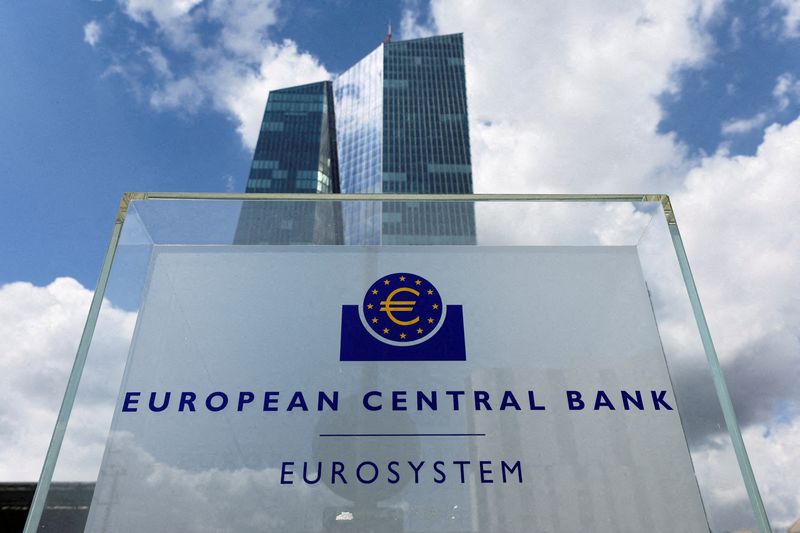By Huw Jones
LONDON (Reuters) - Some banks in the euro zone could struggle to pay back money borrowed from the European Central Bank as volatile markets make it harder to raise funds, the European Union's banking watchdog said on Friday.
Banks had until recently been sitting on 2.1 trillion euros ($2.21 trillion) worth of cash from the ECB's Targeted Longer-Term Refinancing Operations (TLTRO), but are now repaying them after the central bank raised the borrowing costs on them.
"Banks must repay substantial amounts of central bank loans until 2024. A number of banks will be able to rely on existing liquidity buffers – including central bank deposits – to pay back central bank loans," the European Banking Authority said in a report on banking risks in the 12 months to June 2022.
"Some banks however may need to issue additional debt or increase deposits. It remains to be seen how costly replacing central bank funding will be," EBA said.
Meeting separate minimum requirements for issuing debt that can be written down in a crisis could also prove a challenge for some banks, EBA said.
New inflows of "non-performing" or souring loans increased substantially in the first half of 2022 as the economy began to deteriorate and consumers were hit by a cost of living crisis, prompting banks to increase provisions.
Banks continue to hold capital well above regulatory requirements, the watchdog said.
The average return on equity, a key measure of profitability, remains below the estimated cost of equity, with best performers from Greece, Romania and Slovenia, and laggards from Hungary and Ireland.

"In the medium term, market participants do not expect major profitability improvements," EBA said.
($1 = 0.9493 euros)